20 Apr 2023
The Design School and Campus Management Office recently co-organised the first Community Garden Open Day at Xi’an Jiaotong-Liverpool University. The experts from Biolan Suzhou shared their knowledge and skills of composting, and demonstrated how to transform waste from offices, laboratories and cafeterias into nutrient-rich soil. XJTLU students and staff, and local residents also participated in the event. Together, they helped to enhance the ecology and biodiversity on campus.
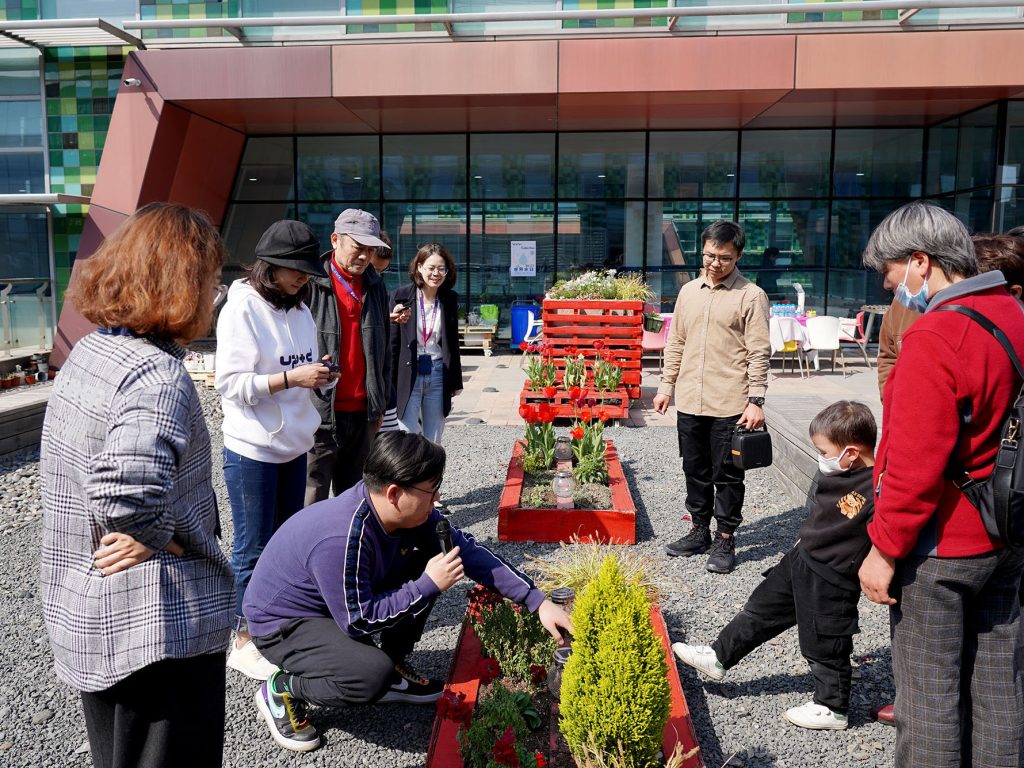
The community garden at XJTLU
The Open Day was held in the roof garden at the Engineering Building on XJTLU’s north campus.
The garden was jointly built and maintained by technicians, academics and students from the Design School, with a display of blooming tulips and other flowers. It also has seedling facilities, composting boxes, and a station to collect coffee grounds and wastewater.
Starting from this semester, the Design School has implemented a new facility management and operation protocol in order to conserve resources, utilise waste, and promote sustainability. And the community garden is part of the growing effort.
Jian Chen, Lab Director at the Design School, said lab technicians and students worked together to build a community garden using reclaimed wooden pallets from campus. They take turn caring for the plants and maintaining the garden. The community garden research team aims to use the garden as a model for sustainable practices at XJTLU, and hopes it will serve as an example for the local community.
From campus to community
At the start of the event, gardener Bowen Qian introduced the plants in the garden and their habits, as well as the importance of soil fertility.
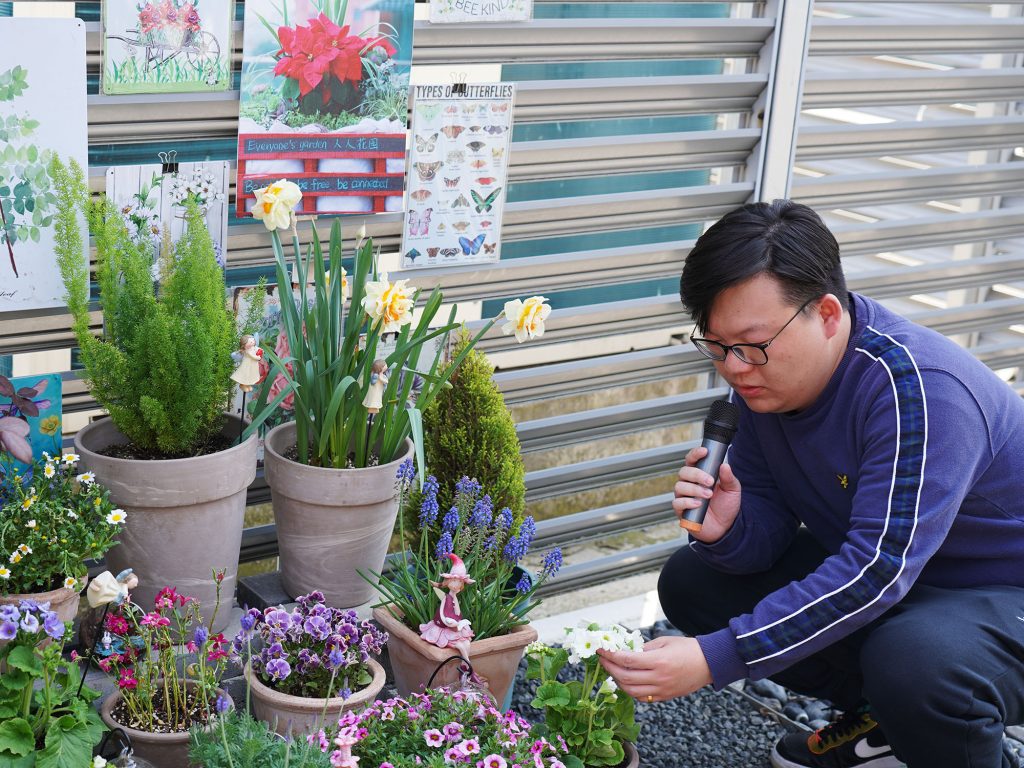
Bowen Qian
Hao Qi from Biolan then introduced that composting is an eco-friendly waste management measure to return organic and decomposable waste to the ecological cycle.
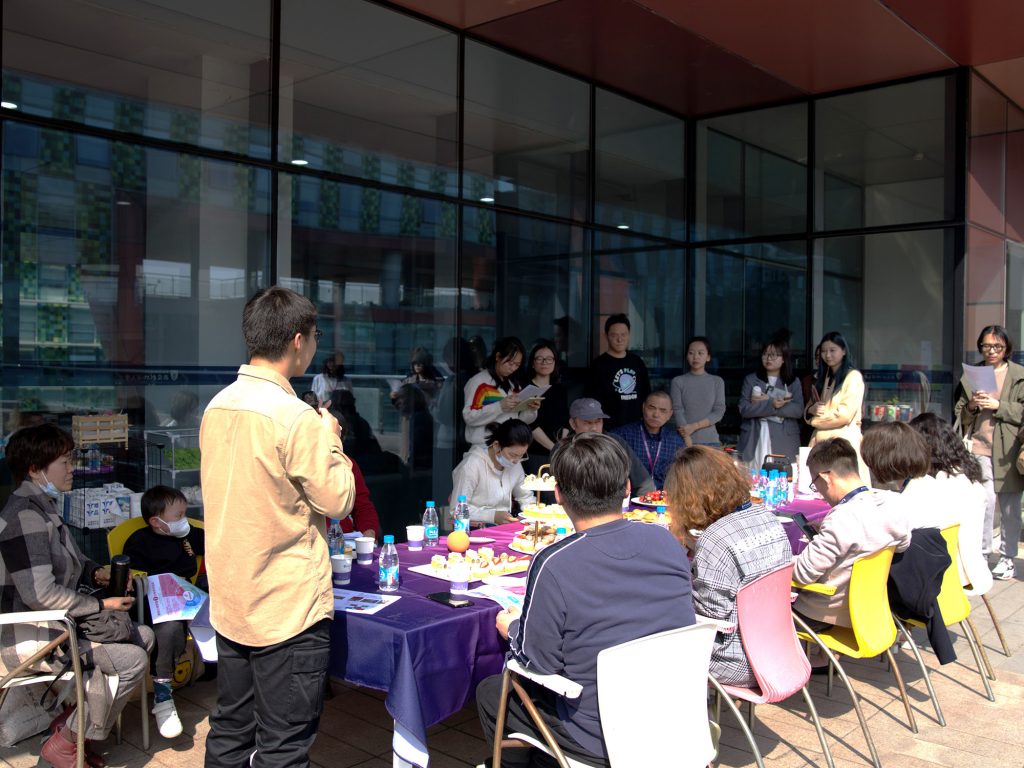
Hao Qi introducing composting to participants
“We need to single out the food waste and deal with it separately before composting,” he says. “Peels, vegetable leaves and other pre-meal and post-meal garbage can all be composted. Composting is much more environmental-friendly than landfill or combustion, because the organic fertiliser produced can nourish plants and improve soil fertility.”
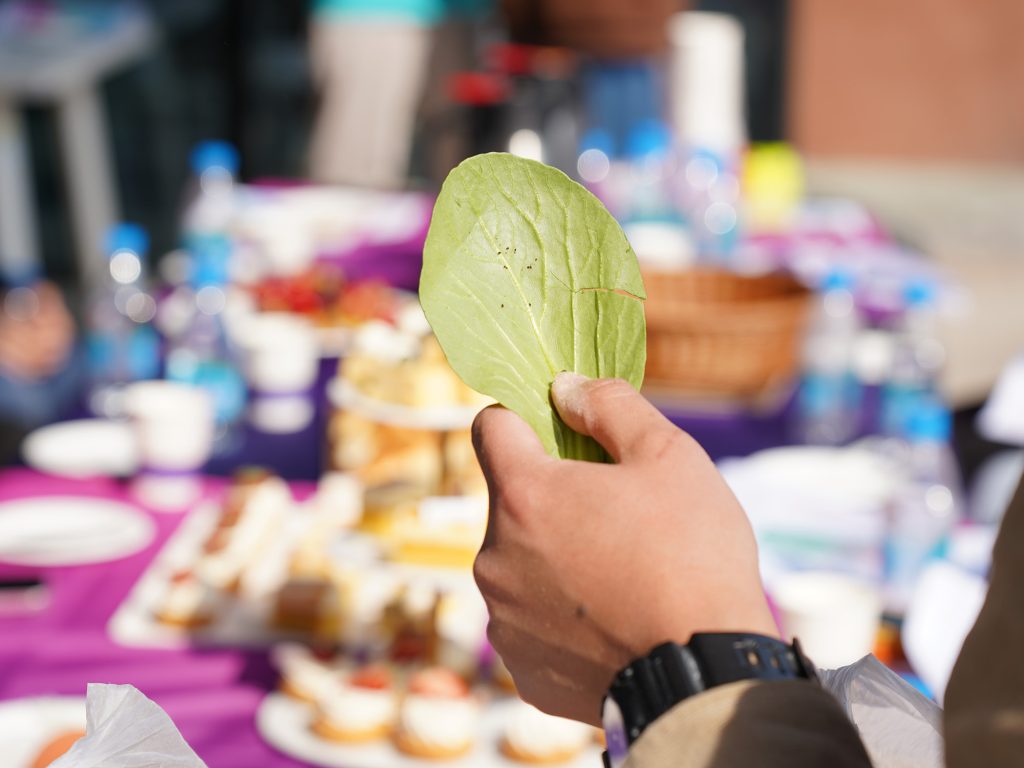
“There are two kinds of composting: anaerobic and aerobic. Generally speaking, aerobic fermentation is more thorough and produces more effective fertiliser than anaerobic fermentation, and its essence lies in cultivating and maintaining aerobic microorganisms.
“This requires us to add a certain proportion of dry and wet materials to control the humidity in the composting box between 50% to 60%. For example, wood chips can absorb water and keep the fertiliser loose and breathable,” Qi says.
He also demonstrated the procedure by using a 220-litre composting box and invited participants to get hands-on experience. He said that one composting box can theoretically process 900-1,000 kilogrammes of kitchen waste every year if operated non-stop.
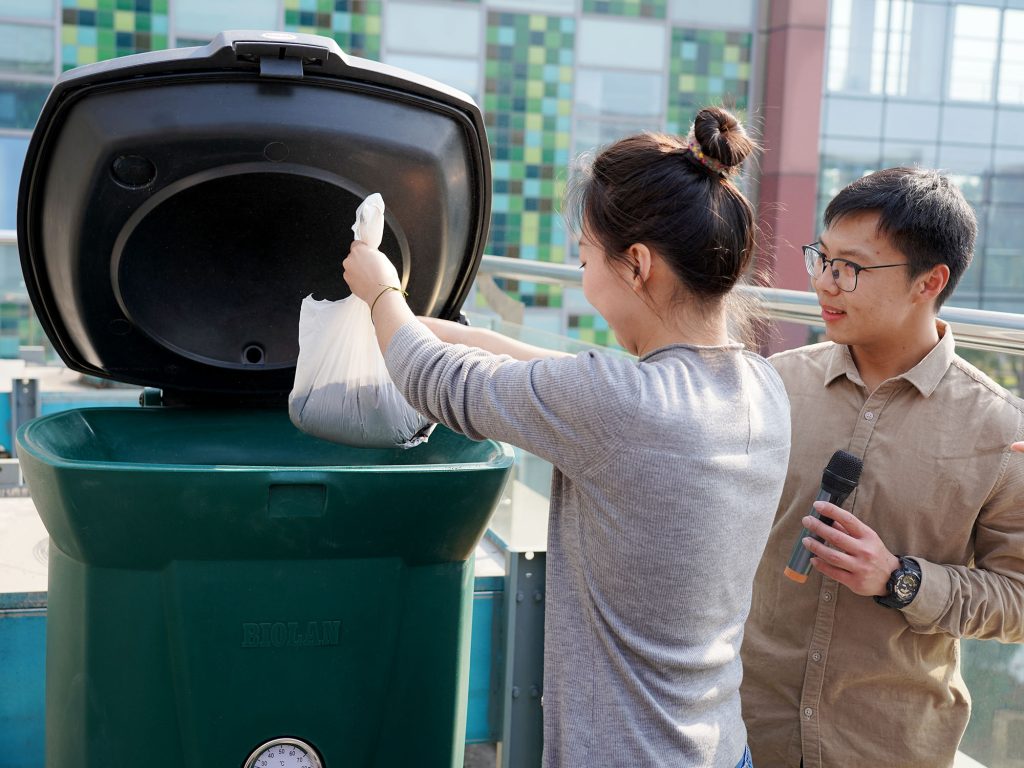
Participant trying composting
Residents of Haide Community were also invited to the Open Day. Local resident Aunt Xu shared her experience of making enzymes from leftover cooking ingredients.
“This seems like a small action, but I believe it can benefit our future generations and make our environment more beautiful,” she said.
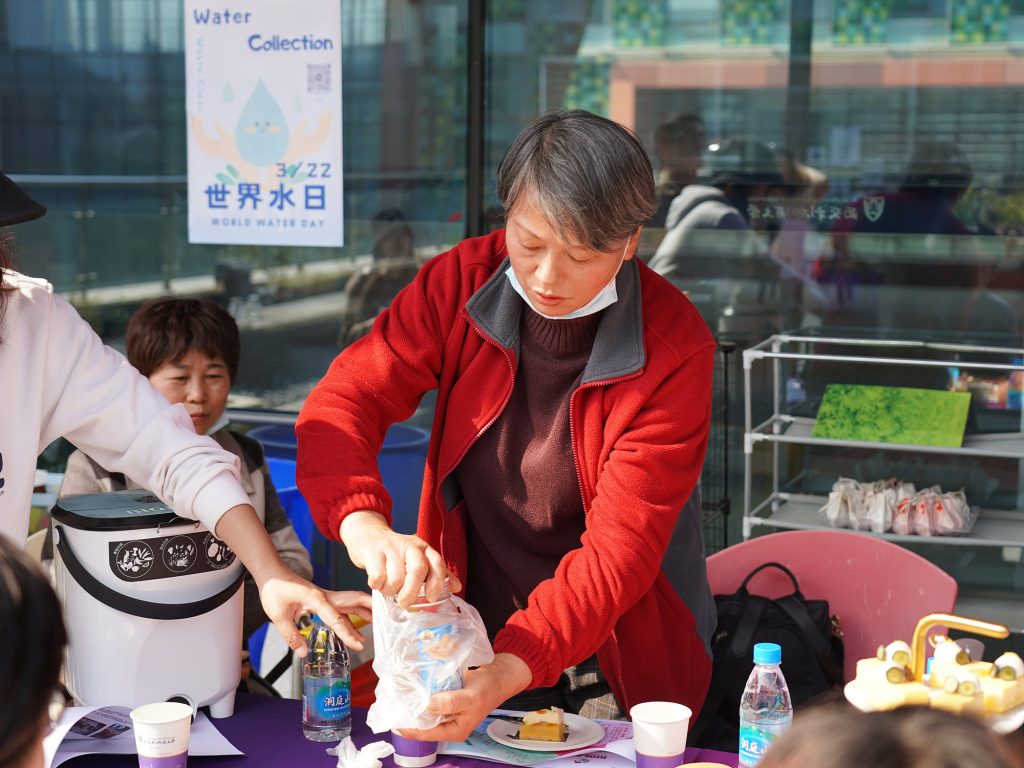
Aunt Xu
Yiheng Fan from XJTLU’s Campus Management Office said they’re also very supportive of the event.
“We have collected coffee grounds from coffee machines in the staff lounge, pre-meal kitchen waste from merchants on campus, and waste water from drinking fountains for recycling. We’d like to make our own contributions to sustainable development of the campus,” she says.
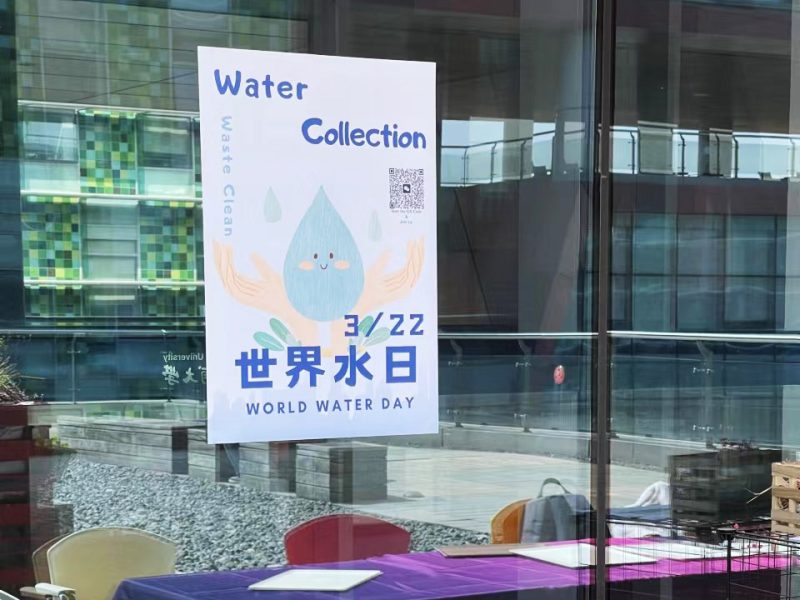
By Jiaying Liu and Yi Qian
Translated by Xiangyin Han
Edited by Xinmin Han
Photos by Jiaying Liu
20 Apr 2023








